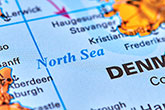TES, DET, and Engie successfully commission LNG terminal
Published by Emilie Grant,
Assistant Editor
Tanks and Terminals,
TES has announced that it played a central role in strengthening Germany’s energy security while laying the groundwork for a climate-neutral future. Together with ENGIE and on behalf of Deutsche Energy Terminal GmbH (DET), TES successfully delivered Germany’s second LNG terminal in Wilhelmshaven.
Germany can now make its energy supply even more secure and flexible. With the commissioning of its third floating import terminal for LNG, the state-owned DET successfully implemented another key project of the LNG Acceleration Act on Monday, May 26.
At a small press event in the presence of responsible representatives from federal and state politics and partners from project management, Dr. Peter Röttgen, Managing Director of DET, praised the excellent cooperation of all those involved: “In this challenging project, we have consistently worked together towards our goal: to significantly strengthen energy supply security in Germany. We must reduce the risks of one-sided dependence on energy imports for our economy and consumers. An indispensable means of achieving this is by diversifying the supply routes for natural gas. Our households and especially energy-intensive industries rely on natural gas until renewables can fully replace fossil fuels. Alongside pipeline natural gas, LNG is making a significant contribution to our stability in Germany and Europe on the road to climate neutrality. On behalf of the entire DET, I would therefore like to express my sincere thanks to all the companies involved, the approval authorities and the officials and elected representatives who have made this project possible.”
Katherina Reiche, Federal Minister for Economic Affairs and Energy, says: "Gas will remain of great importance for our energy supply for the foreseeable future. The opening of the second LNG terminal in Wilhelmshaven is therefore an important step towards greater security of supply, diversification of energy sources and the resilience of our country. It is a great success that the terminal can now be connected to the grid."
The second LNG terminal in Wilhelmshaven was connected to the grid in around two and a half years, including planning and approval. Despite major engineering challenges, the project partners ENGIE Deutschland and TES on behalf of DET completed the project in roughly half the time typically required for comparable large-scale LNG projects. DET and the project partners were supported during construction by the Gasfin Group, which will take over terminal management on site in the future.
Marco Alverà, Co-founder and CEO of TES, says: “The FSRU has helped turn Wilhelmshaven into a key entry point for LNG – at a time when energy security and transatlantic trade are high on Europe’s agenda. TES, together with ENGIE, DET, and BMWE, has delivered a result that strengthens Germany’s supply today and lays the foundation for TES’s onshore terminal, which will enable large-scale imports of both LNG and e-NG. We are proud of the outstanding work by the TES team in bringing this project to life.”
Eric Stab, CEO of ENGIE Deutschland AG, says: "We are pleased that ENGIE, together with TES, was able to contribute to securing Germany's energy supply in the short term. We were responsible for the development and construction of the marine infrastructure that enables the operation of the floating terminal. We also negotiated the charter agreement with Excelerate Energy on behalf of the German government and continue to support DET with ship management. Our thanks go to all those involved in the project."
In 2025, Excelsior will feed up to 1.9 billion m3 of natural gas into the German gas grid. This corresponds to the annual natural gas consumption for heating 1.5 million four-person households in multi-family homes. In the two subsequent years, Excelsior's regasification and grid feed-in capacity will then reach up to 4.6 billion m3 each, equivalent to the annual heating energy required by up to 3.7 million four-person households.
Read the article online at: https://www.tanksterminals.com/terminals/27052025/tes-det-and-engie-successfully-commission-lng-terminal/
You might also like
Hydrocarbon Engineering Podcast
Peter Davidson, CEO of the Tank Storage Association (TSA), joins us to discuss the essential role that the tank storage sector has to play in ensuring supply security and resilience, as well as in facilitating the energy transition.
LBC, ABP, and North Sea Port partner to advance carbon shipping in the North Sea
LBC, Associated British Ports, and North Sea Port have signed an MoU to develop a CCS terminal and shipping corridor connecting Northwest Europe with the UK.


